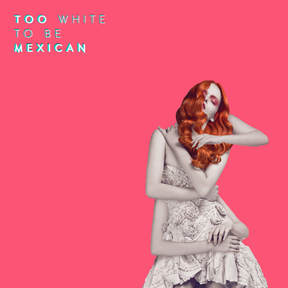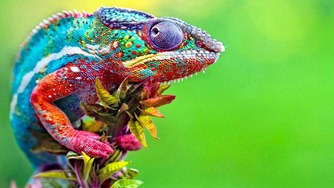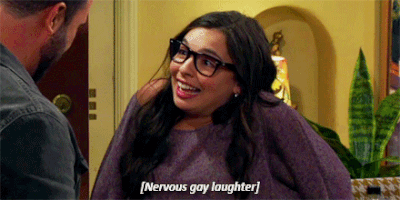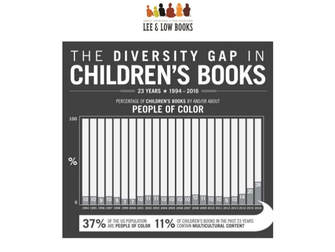 Borrowed from Google. Check out Giovanni Escalera's collaborative multimedia project: https://toowhitetobemexican.bandcamp.com/ Borrowed from Google. Check out Giovanni Escalera's collaborative multimedia project: https://toowhitetobemexican.bandcamp.com/
I NEVER FELT MEXICAN. NOT REALLY.
I've written several times about growing up as a privileged half-Latina, white-passing American, and I cannot stress how embarrassing it was to never really meet anyone else going through this. And isolating. Every time I met another Latinx person, I felt like a fraud. I even considered joining my school's Amigas Unidas organization, or the Sigma Lambda Gamma chapter, but I felt "too white" to join. I kept feeling like I had to prove that I knew Spanish, kept apologizing for my grammar. I pretended like I understood the slang jokes that everyone else made. I was lying. I am a proud Latina; I'm proud of the legacy that my Mexican grandparents have set, the stories of perseverance that they told about growing up prior to Cesar Chavez's labour movement. I grew up as a young Mexican girl in Fresno, but my story was far from that of Gary Soto's--I lived in the suburbs, not the barrio; I went to private, magnet, and charter schools and had an attentive mother who nagged me about my grades; there was never any question about whether I was going to college or not, and I even thought of Fresno State as a fallback school rather than something to aspire to*. And to make matters worse: I was never racially profiled. This sounds like a good thing, doesn't it? And it is, to an extent. But it's distressing in that my brother and I have drastically different experiences with this, despite having the same racial blood makeup.  Actual photograph of me (source: Google) Actual photograph of me (source: Google)
Maybe three or four people in my entire life have guessed that I'm Latina; usually, people assume that I'm part-whatever racial group I happen to be in at that moment**. Chinese, Armenian, White, Israeli, whatever--but people are usually surprised when they find out I'm Latina. It's nice in the sense that I'm a racially ambiguous chameleon, but not as thrilling when I'm struggling to have to give credibility to my identity.
On the other hand, my brother--who is darker, has thicker, curlier hair, and a beard--gets racially profiled all the time. He's constantly getting stopped at airports and having his belonging searched at theme parks. His Spanish might even be worse than mine, but most people accept him as Latino. Well, except at the airport. Most of the time they think he's Middle Eastern. Yay, American racism. 
For those of you who don't know, there's a show on Netflix called "One Day at a Time"--probably the first-ever American sitcom starring a Cuban-American family that is unapologetically Latin. My favorite character is (predictably, to my family) Elena Alvarez, the teenage queer daughter who one day realizes that she passes as White. A discussion ensues about how some Latinxs are white--which is a discussion I've never had except to "discount" people from being Latinx.
I am a bisexual, half-Latin, half-Jewish, non-Christian Quaker who spends the majority of her time in between two worlds. When I'm around white people, I'm a person of colour. When I'm around people of colour, I'm white. When I'm around gay people, I'm straight; when I'm around straight people, I'm gay. It's amazing to me that--in this modern America, where hyphenation is then name of the game and so many of us are mixed-race, mixed-culture children of immigrants who don't quite fit into the world of their parents and don't quite fit into the world of their peers--that there is such a gap of stories in the media that represent characters with this life perspective. Miranda Sanchez from Lizzie McGuire was the first one I saw, but her storyline as a Latin-American teenager who didn't quite fit into the Spanish-speaking world of her parents was only portrayed when Disney found it convenient for Hispanic Heritage Month. Elena Alvarez is the first fully fledged character that I've seen walk this storyline, and we need more of her. 
Thankfully, the #ownvoices movement currently happening in the world of book publishing is growing, and I'm absolutely THRILLED about it. The three novel-length projects I've been working on all feature women of colour, and most of those characters are also queer. I see agents all the time on #MSWL looking for stories like this, changing the world of representative stories to include these not-so-minority stories that should have been included a long time ago. The best part about these stories is that they aren't necessarily about immigrants or struggle or oppression--they're about people who just happen to be of colour, who just happen to be queer, etc, and that adds to the existing stories of oppression and struggle and immigration that already exist.
The breadth of stories featuring people of colour therefore becomes more colourful and more representative of the people who exist--and legitimizes the real stories of people like me, making the framework of my existence more understandable when I explain it to people.
I wish I'd had Elena's story fifteen years ago when I was going through similar stuff. Luckily for my kids and the next generation, she will be. Fiction is such a powerful tool. It's the mirror with which we review our current lives, reflect on our past lives, and imagine our future lives. It's the paintbrush we use to canvas the story of human existence. Within it, the representation of lives we portray is essential to those of us who want to imagine the possibilities of our future lives--just ask the father of a fan of Diego Luna's in Rogue One. It is with this tool that we can create societal acceptance, that we can provide inclusivity. It is with this tool that we can make people feel at-home. *I will never make this mistake again. I'm sorry, Fresno State, for my younger hubris. You are an extremely fine school and I'm thrilled that most of my family members are Bulldogs! **Which I wrote a poem about here, and you should read it if you haven't already. #shamelessplug (THIS POST WAS DEFINITELY NOT WRITTEN IN AN EMOTIONAL RESPONSE TO THE "ONE DAY AT A TIME" S2 FINALE)
0 Comments
Leave a Reply. |
PART OF THIS COMPLETE BREAKFASTBlog not recommended for sober consumption. |
 RSS Feed
RSS Feed